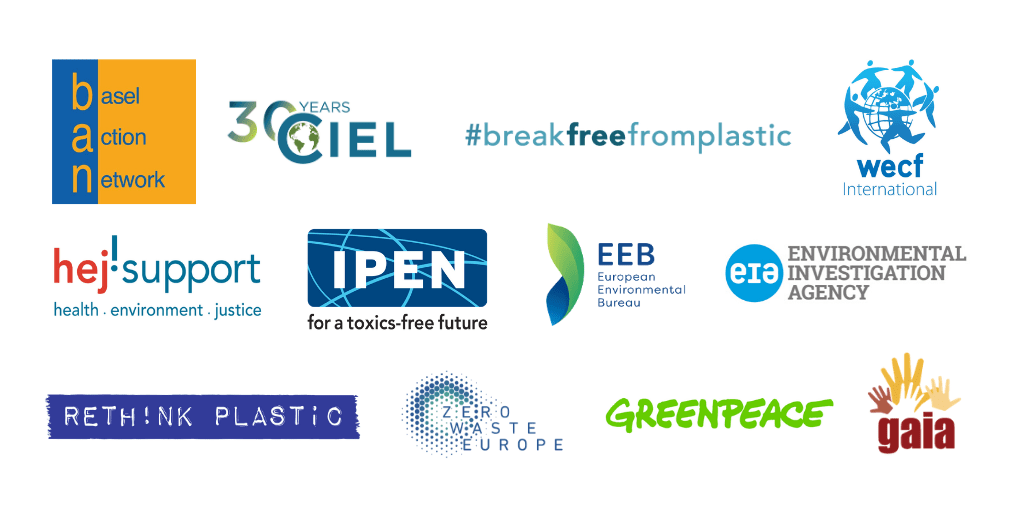16 November 2020 Brussels
In a new report, ClientEarth, the European Environmental Bureau (EEB) and the Rethink Plastic Alliance, urge the European Commission and Member States to severely restrict the intentional use of microplastics, beyond what is currently proposed by the European Chemical Agency (ECHA).
The call comes as ECHA finalises its recommendations for a ban on microplastics that are intentionally used, in all sectors including, for example, cosmetics, detergents, paints, or sport pitches. The ban could drastically reduce the pollution caused by these sectors.
Environmental experts warn that while the current version rightly gauges the harmfulness of microplastics, it is too soft on key sources of microplastic pollution, which could jeopardise the overall effectiveness of the final restriction.
ClientEarth lawyer Hélène Duguy said: “EU institutions promised to crack down on microplastic pollution but the latest proposal doesn’t cut it. “The ball is in the European Commission and EU countries’ court now and it’s crucial that they show ambition. With the loopholes we’re looking at, an ever increasing volume of microplastics will keep on flooding into the environment. Once there, they persist and accumulate – hence the need to turn off the tap as fully and quickly as possible.”
The report specifically points to the fact that:
- Not all intentionally used microplastics are targeted. Allegedly biodegradable microplastics and soluble polymers are for example exempt, which might lead companies to use those instead, failing to actually reduce microplastic pollution.
- Insufficient requirements on major sources of microplastic pollution. The current proposal does not adequately restrict microplastics contained in sport pitches (even if alternatives exist) and similarly, the requirements for reporting on pellet loss should be strengthened.
- Exemptions that lack sound justification. For example, the latest version of the proposal would allow microplastics to be used in continence pads, menstrual pads and nappies, despite these being in direct contact with the human body and a known source of marine pollution.
- Unjustified delays in implementing the ban. For example, the ban on microplastics for leave-on cosmetics would only enter into force in 2028, while alternatives already exist.
Beyond environmental considerations, experts argue that a strong restriction would boost innovation in the market for microplastic-free alternatives and spare public authorities from the cost of cleaning microplastics, notably in water.
Duguy added: “By standing firm on the ban, the EU would show that it is truly committed to its promises under the European Green Deal and the Chemicals Strategy for Sustainability.”
Elise Vitali, Policy officer on Chemicals for the EEB, said: “Every week, a new study opens our eyes further to the dangers of plastic pollution. In recent years the EU has led the world in confronting the problem; banning many throw-away products and announcing the microplastic crackdown. But industry holds a lot of sway in Brussels and lobbyists have injected some really troubling loopholes that would allow the polluting business-as-usual to keep on. Leaders need to close the highly risky backdoors to the microplastics restriction.”
Gaëlle Haut, EU affairs project manager at Surfrider Foundation Europe, said: “The Ocean would be home to as many as 125 trillion microplastic particles. Building a Healthier Planet for Healthier People as the European Commission has committed to with its Zero Pollution ambition starts with a ban, coming into effect as soon as possible on all intentionally added microplastics.”
Tom Gammage, Ocean Campaigner at EIA, said: “Microplastics represent an appalling and insidious form of pollution, the impacts of which we are only just beginning to understand. This restriction is a step in the right direction, yet currently it falls short on the ambitious action required to lead the world in decisively tackling this growing issue.”
Frédérique Mongodin, senior marine litter policy officer with SEAS AT RISK, said: “Debates about the multiple impacts of microplastics have gone on for too long, at a time when the anticipated growth of global plastic consumption is out of control and requires short term action. Discussing long transitional periods for primary microplastics hardly makes sense when sustainable alternatives already exist for most of them. When it comes to plastic pellets, manufacturing and handling companies need to take responsibility for the current lack of information, training and transparency available to professional users, when targeted information on the environmental costs of pellet loss could keep that chronic pollution under control.”
ENDS
Read the position paper and summary two-pager
Notes to editors
Between 75,000 and 300,000 tonnes of microplastics are released into the environment each year in the EU alone. Scientists are warning that the situation is out of control.
Microplastics can be found almost everywhere: on mountains, in the ocean, in the Arctic sea ice and in human bodies.
Globally, 2,249 species of plant, animal and microbe are known to interact with micro- and nano-plastics. These tiny synthetic polymers are harmful to biodiversity as they resist biodegradation – fragmenting in nature – causing including by blocking the digestive tracts of aquatic creatures, turtles and birds. Extensive scientific evidence also shows that microplastics facilitate the bioaccumulation of pollutants in animals and plants, including those destined for human consumption. Most scientists agree that they are likely to be harmful to human health.
In 2019, upon request from the European Commission, ECHA submitted a proposal for restricting the use of intentionally added microplastic particles to consumer or professional products of any kind, in line with the EU Plastics Strategy (2018). The proposal would reduce intentionally added microplastic pollution by nearly 40,000 tonnes after 2030.
The scientific assessment of the restriction proposal by ECHA committees will be finalised and made public in December, after which the European Commission will have three months to draft a proposal that the Member States will vote on.
